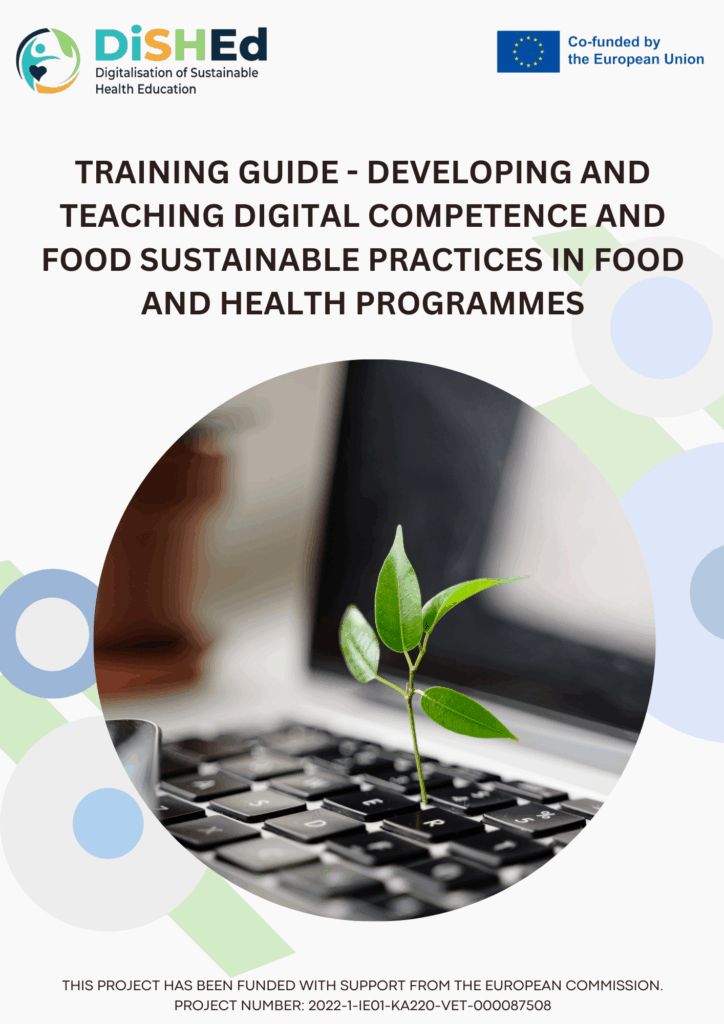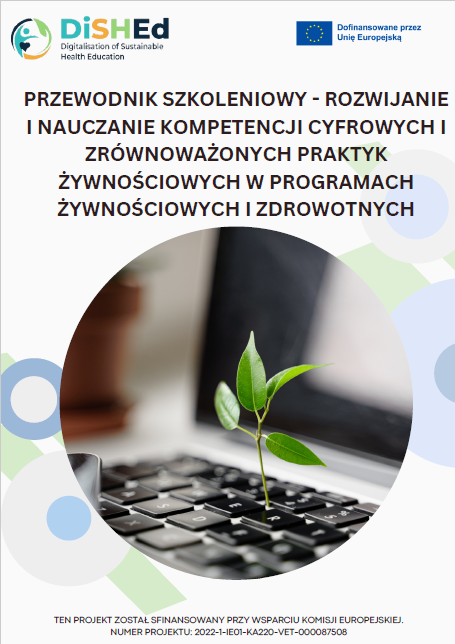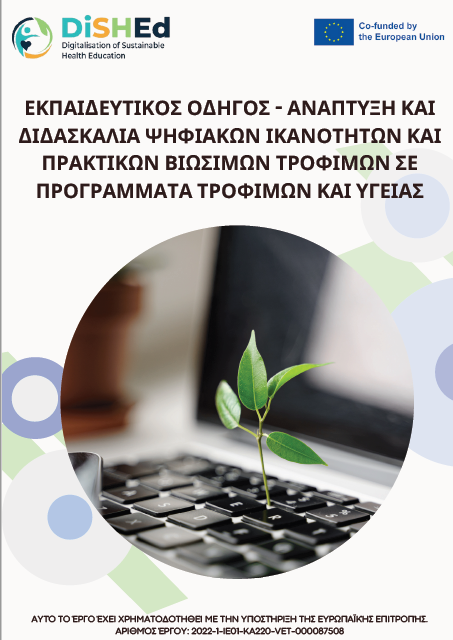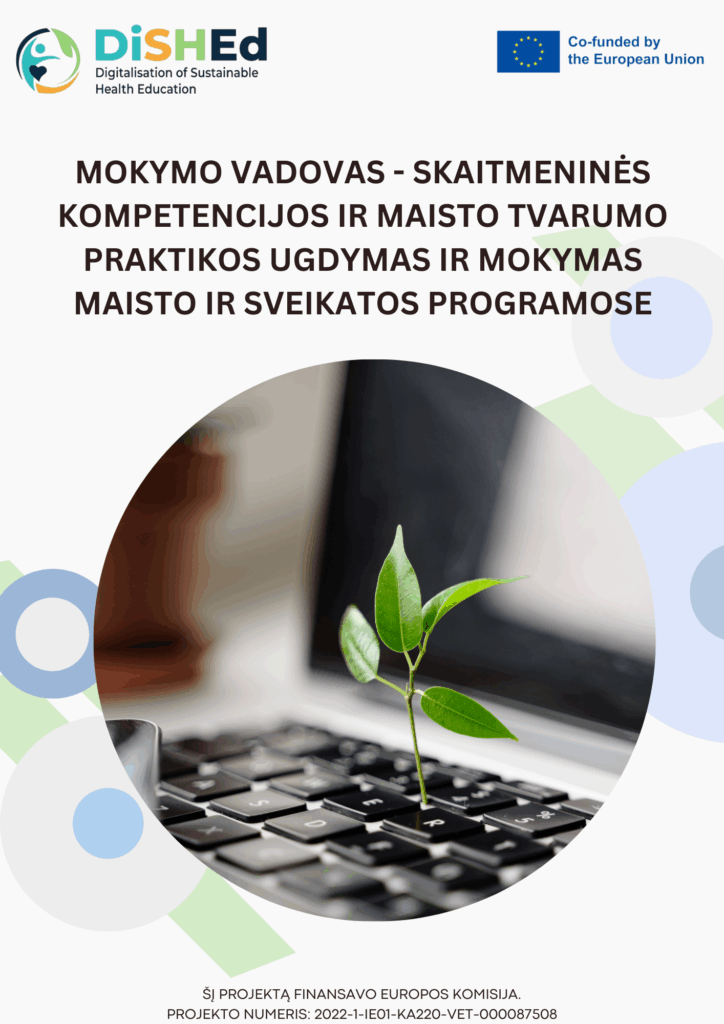The DiSHEd project produced nine results, including a report on employer needs, infographics on food sustainability priorities, job opportunities for VET food and health graduates, a case study booklet on current practices, a digital competency training guide for VET educators, a report on digital and sustainability teaching practices, and best practices and online learnings from COVID-19.
Each of these results can be accessed below in each of the project’s partner languages – English, Polish, Greek, and Lithuanian.
Result 1: Report on Employers' Needs in the Current Labour Market
A comprehensive report on employers’ needs in the current Food and Health labour market based on focus groups with industry across partner countries.
R1 was informed by in-depth online focus groups with food industry employers across Europe. These focus groups were designed to explore employers’ expectations and requirements of today’s labour market in relation to employees’ digital capabilities and knowledge of SDGs. The findings from the focus group were further strengthened with the circulation of a survey to capture additional responses and input from more employers in the food industry.
The resulting data analysis indicated that graduates are well-prepared for food industry jobs, but employers identified the need to stay current with digital competency.
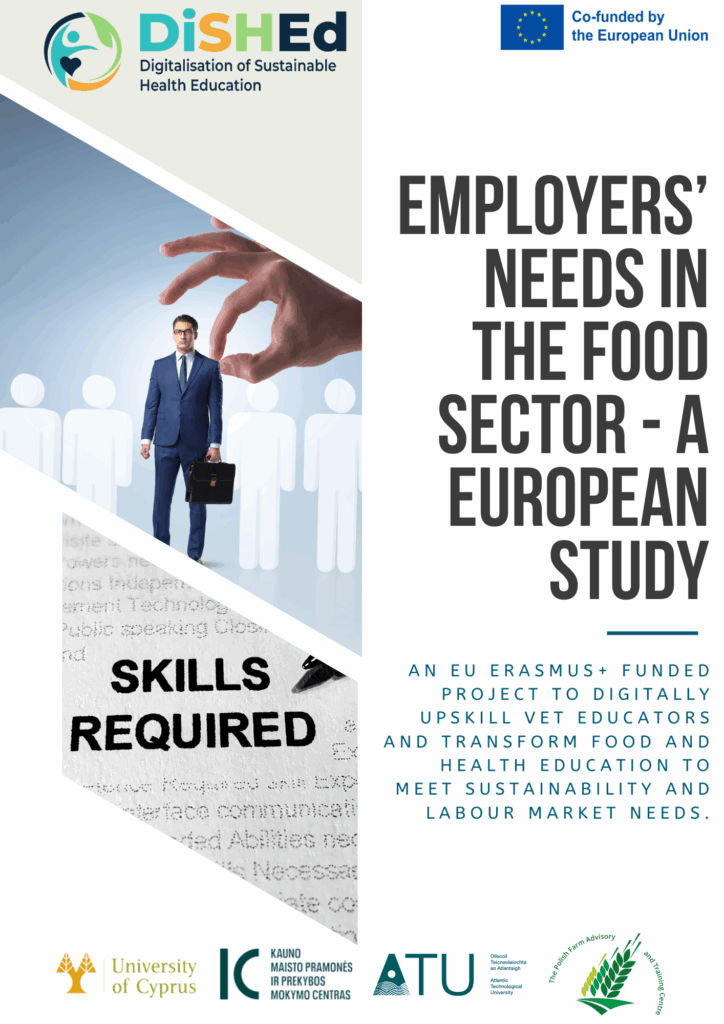
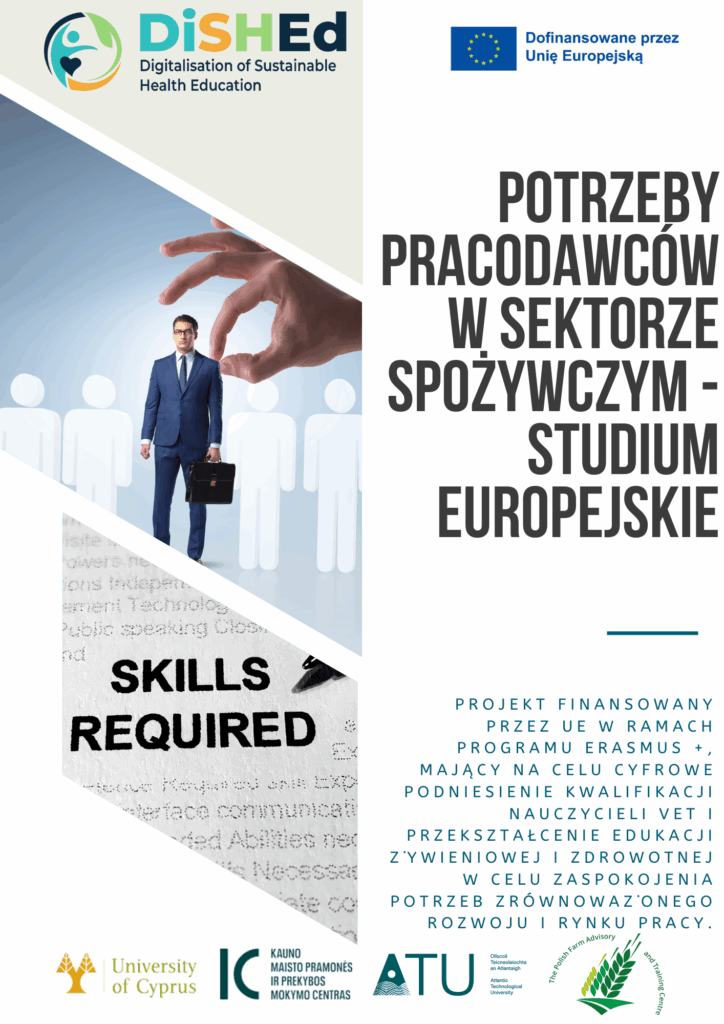
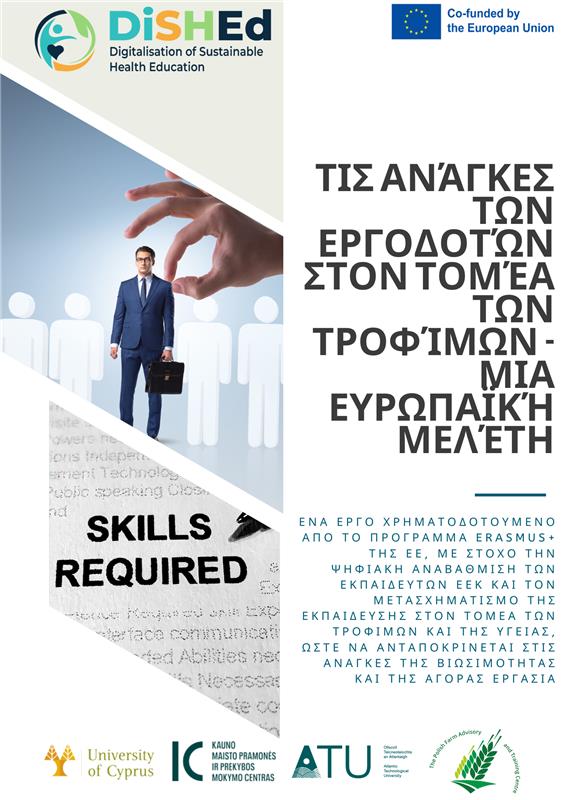
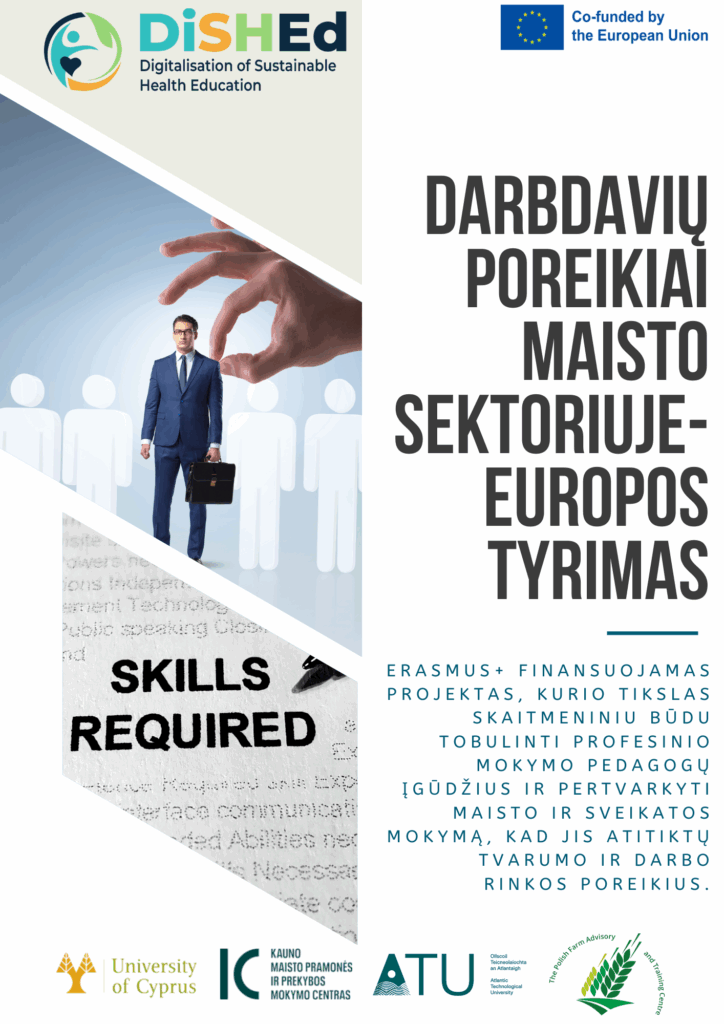
Result 2: Infographics on Sustainable Food Priorities in the European Food Industry
The data collected in R1 was analysed to identify the key sustainability priorities reported by employers in the focus groups and survey responses. These were collated and categorised resulting in the identification of three key areas industry are prioritising their sustainability efforts and implementing sustainable practices.
These are zero waste, resource management and quality. The main sustainability goals under each of the three areas can be seen described in each infographic.
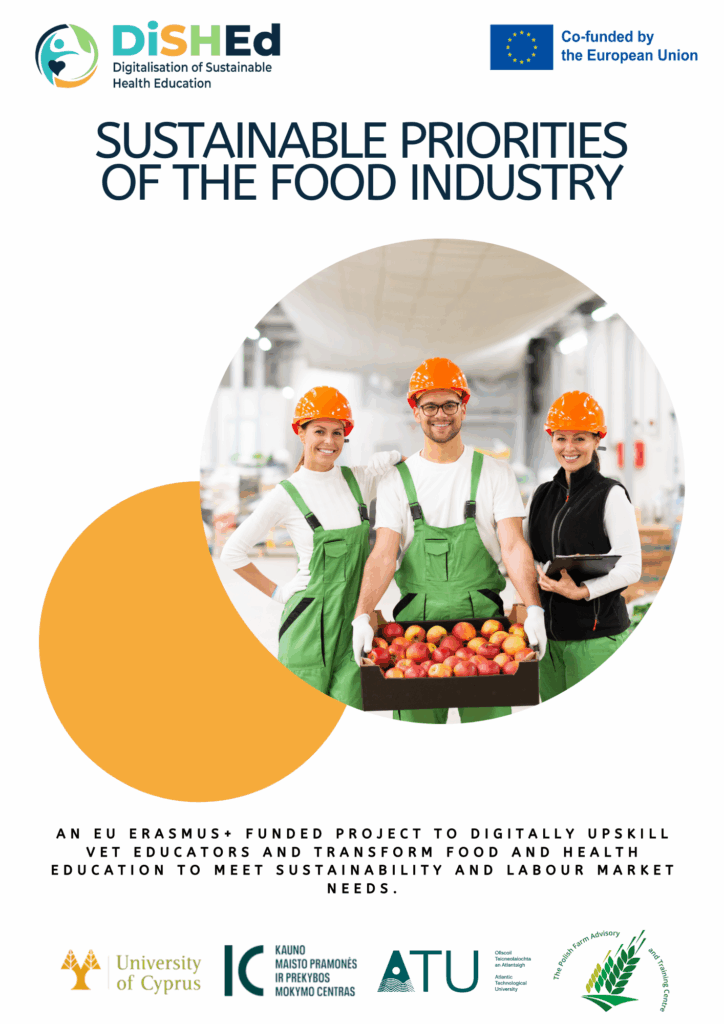
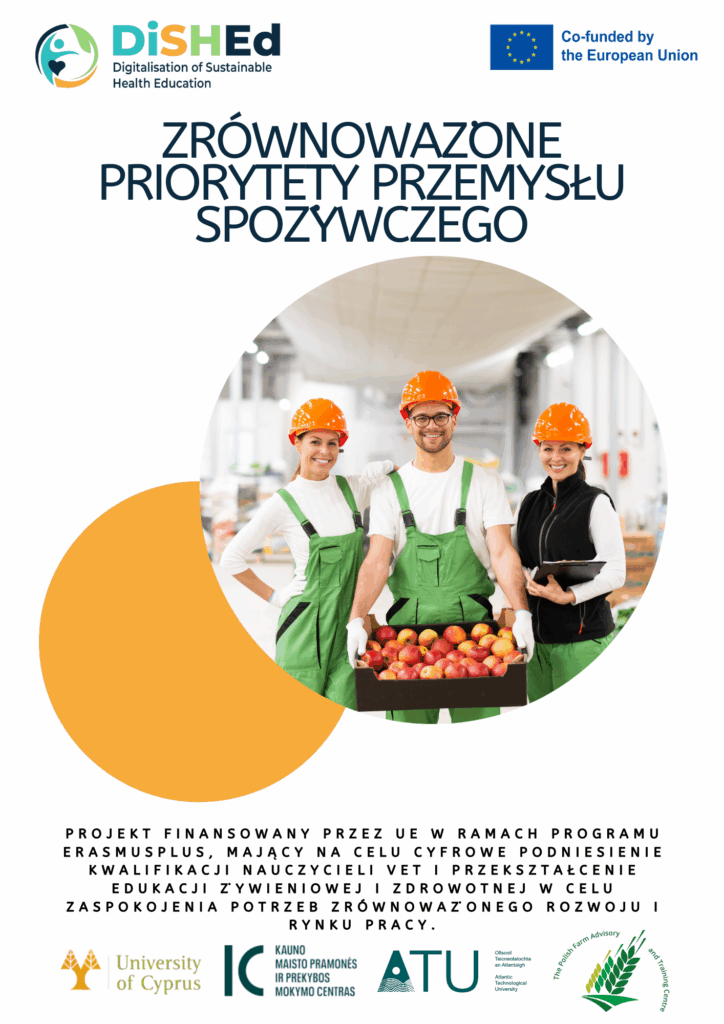
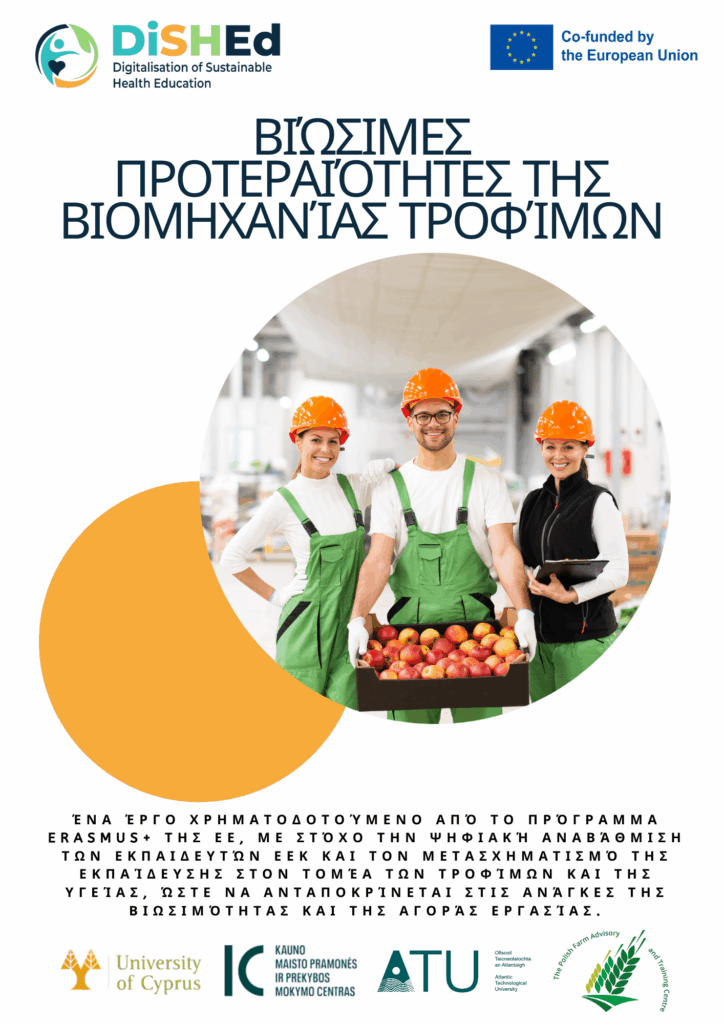
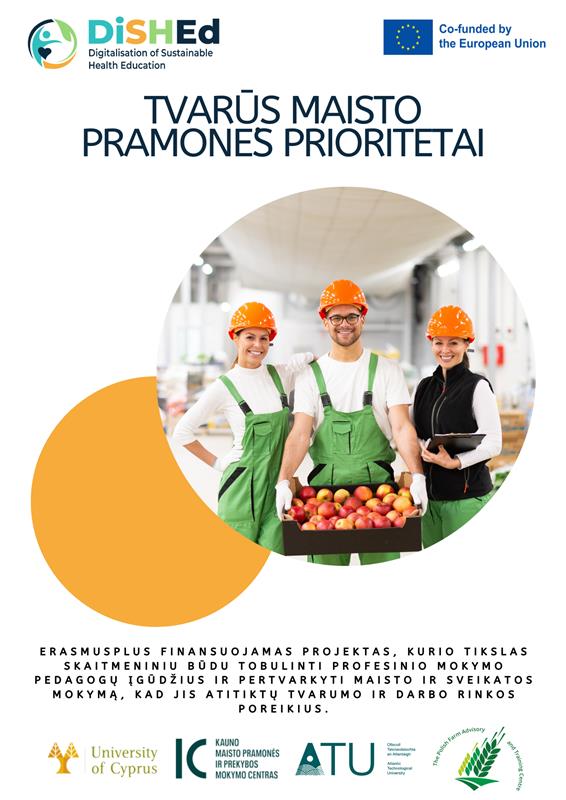
Result 3: Report on Job Opportunities for VET Food and Health Graduates
A full search of job opportunities in the food industry across Europe was completed over a four-month period. From this data collection a list was created detailing job opportunities available to graduates, and the skills and knowledge required for the roles. This data was analysed, and the findings generated a report on graduate job opportunities and employer requirements.
This report will inform VET educators of current graduate employment areas and provide real-world examples to allow them to discuss the realities of work with students on food and health programmes.
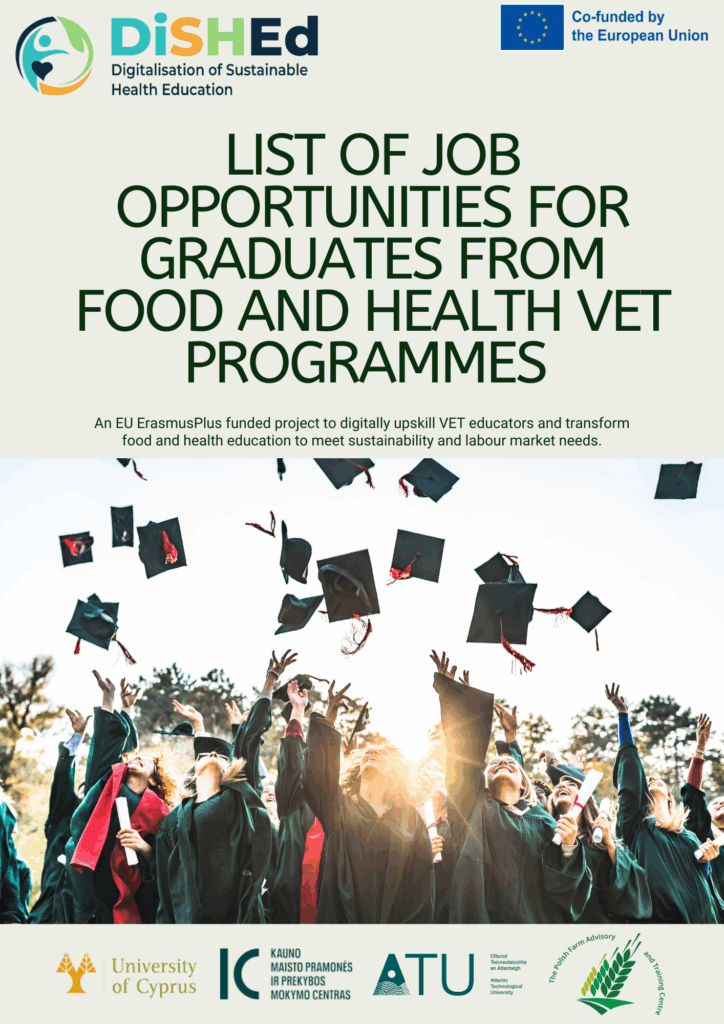
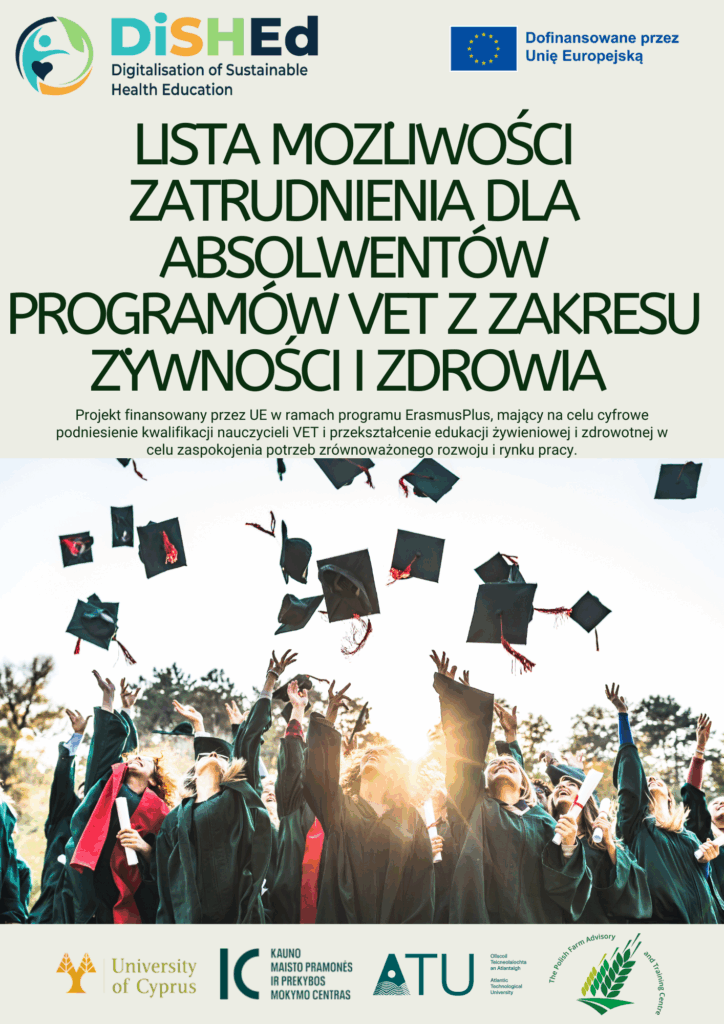
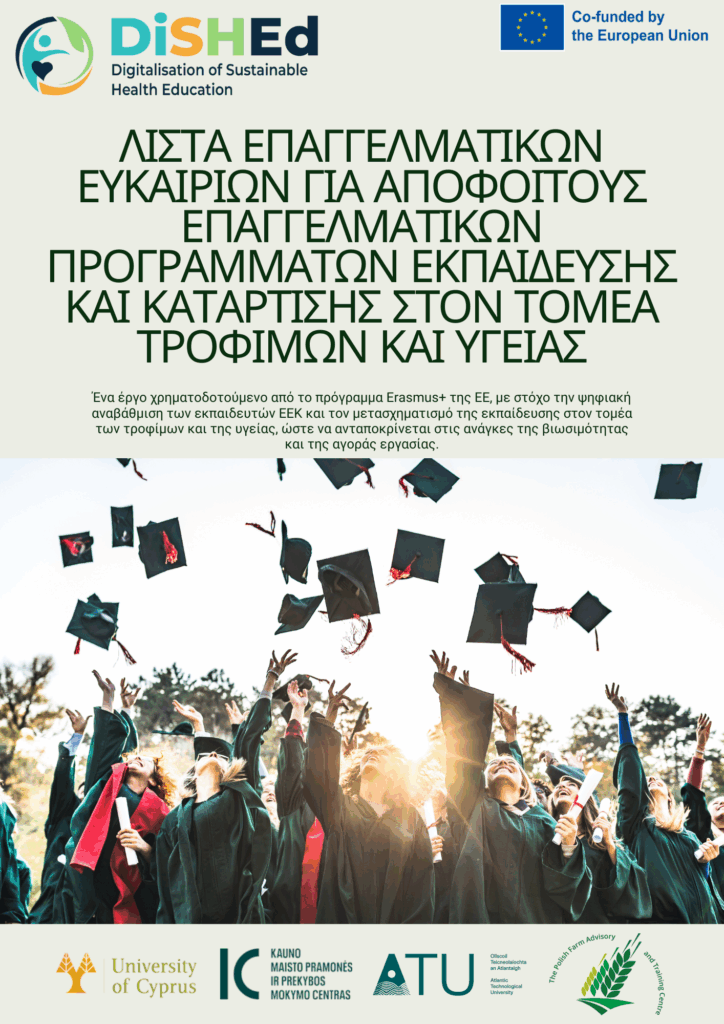
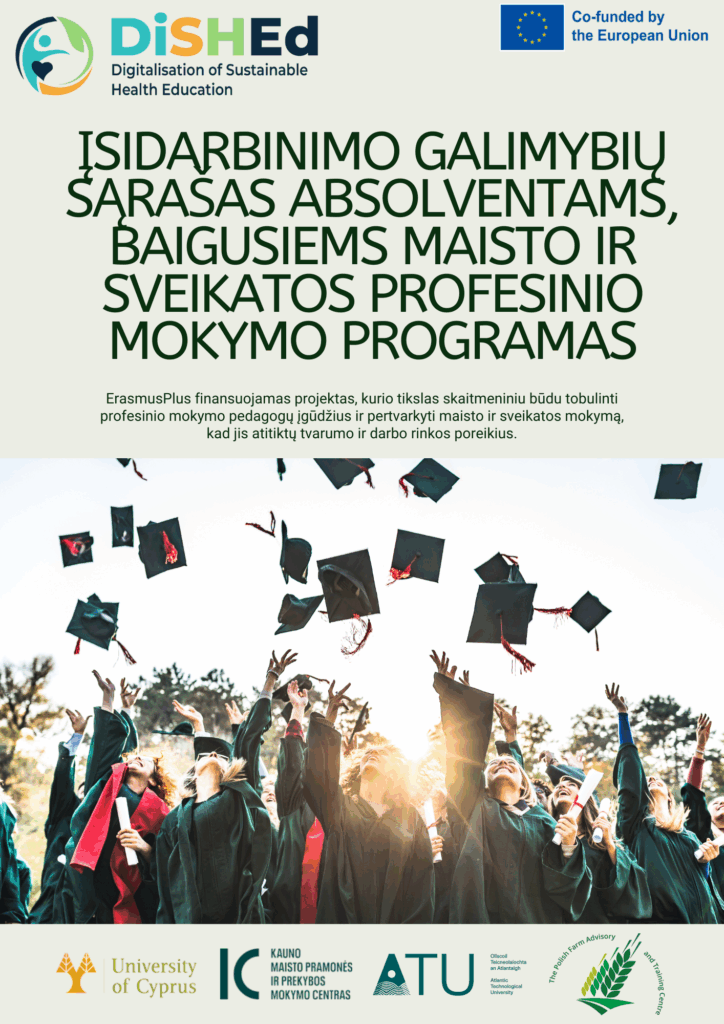
Result 4: Report on best practice case studies of food sustainability practices in partner countries
Lorem ipsum dolor sit amet, consectetur adipiscing elit. Ut elit tellus, luctus nec ullamcorper mattis, pulvinar dapibus leo.
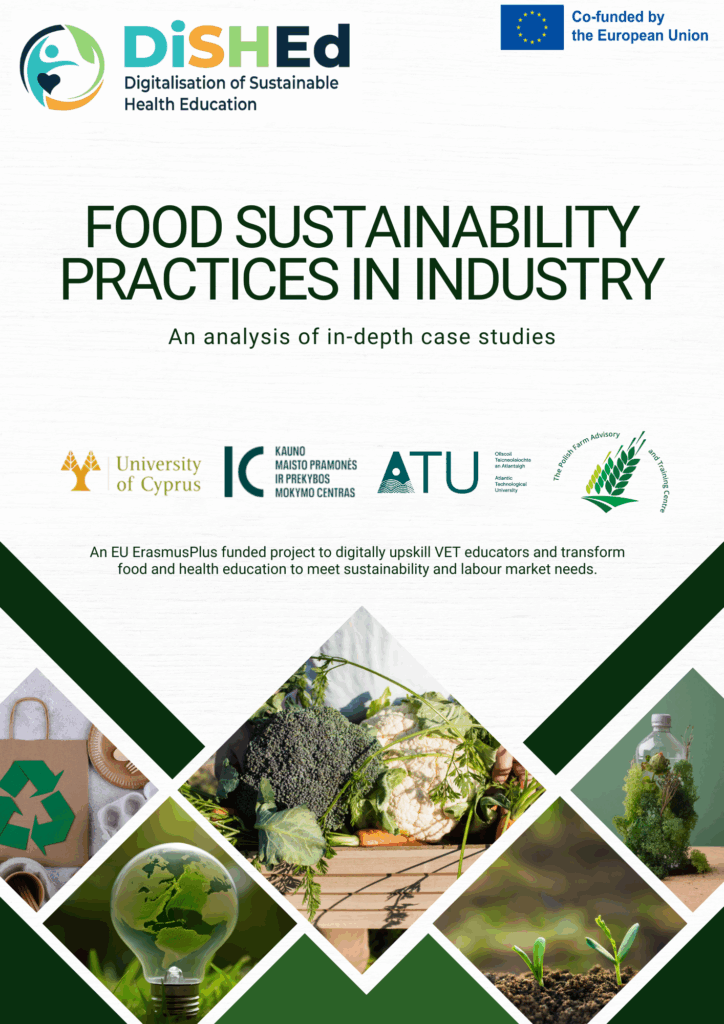
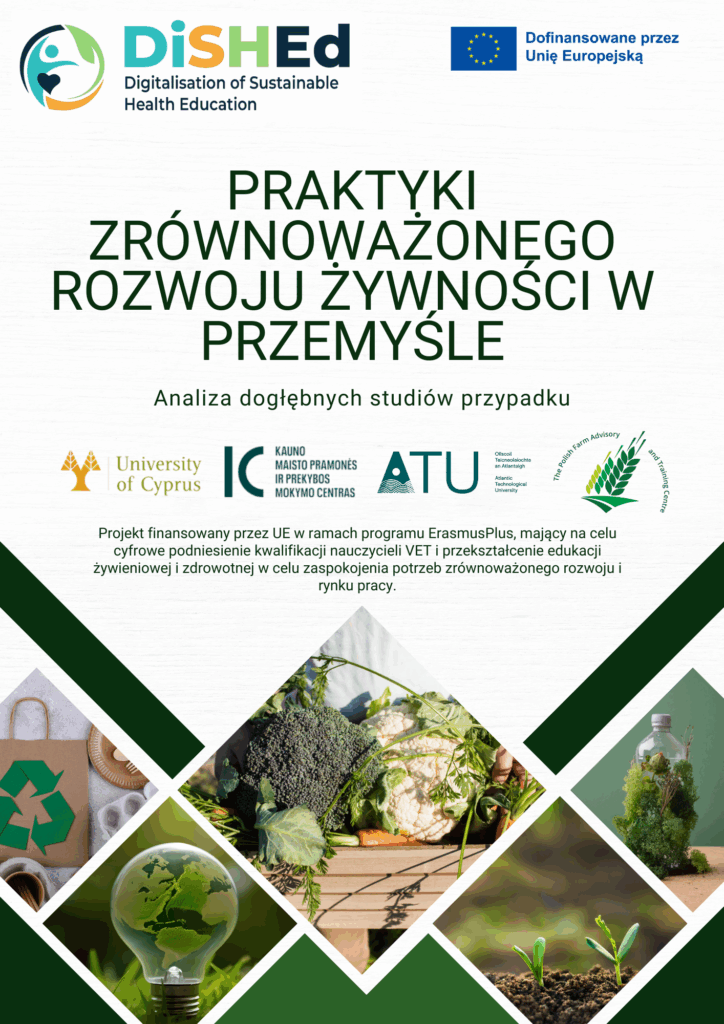
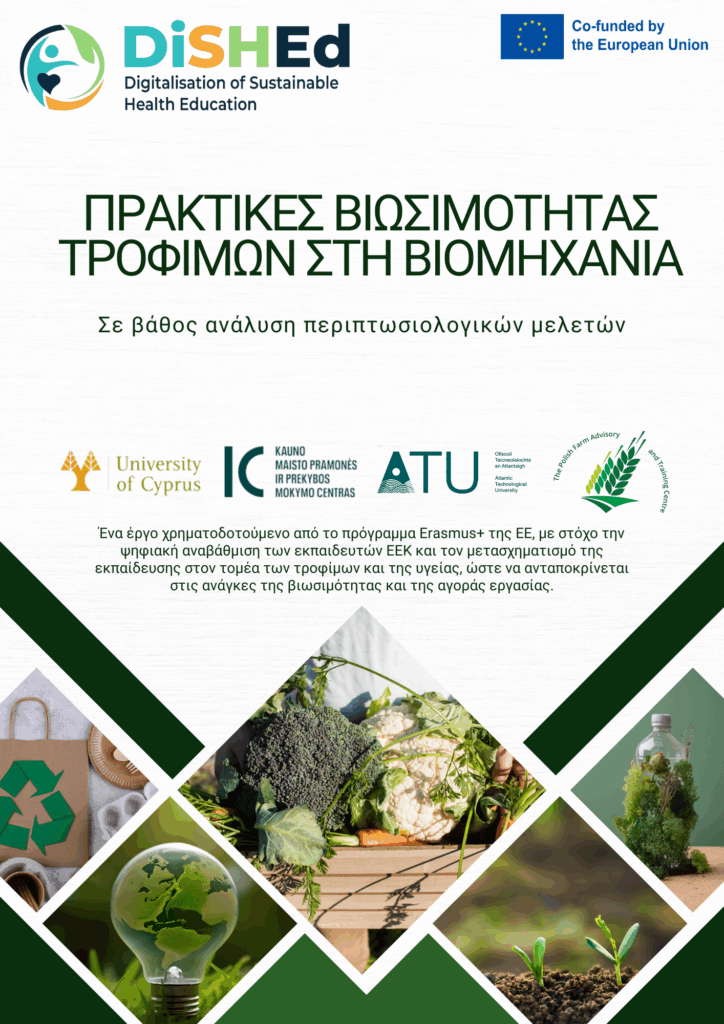
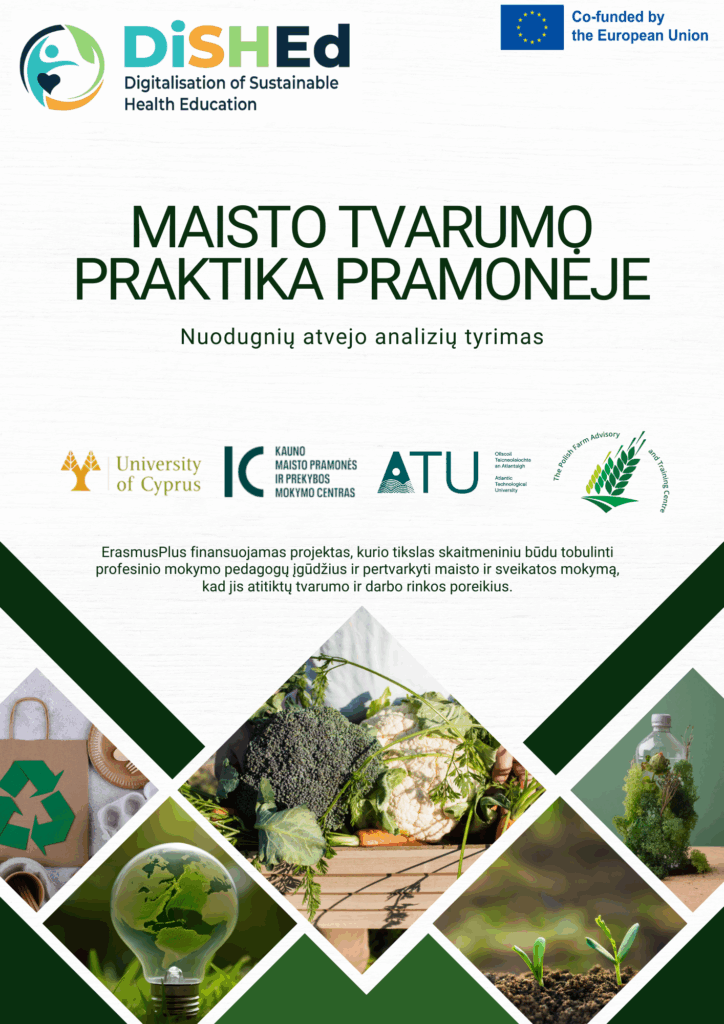
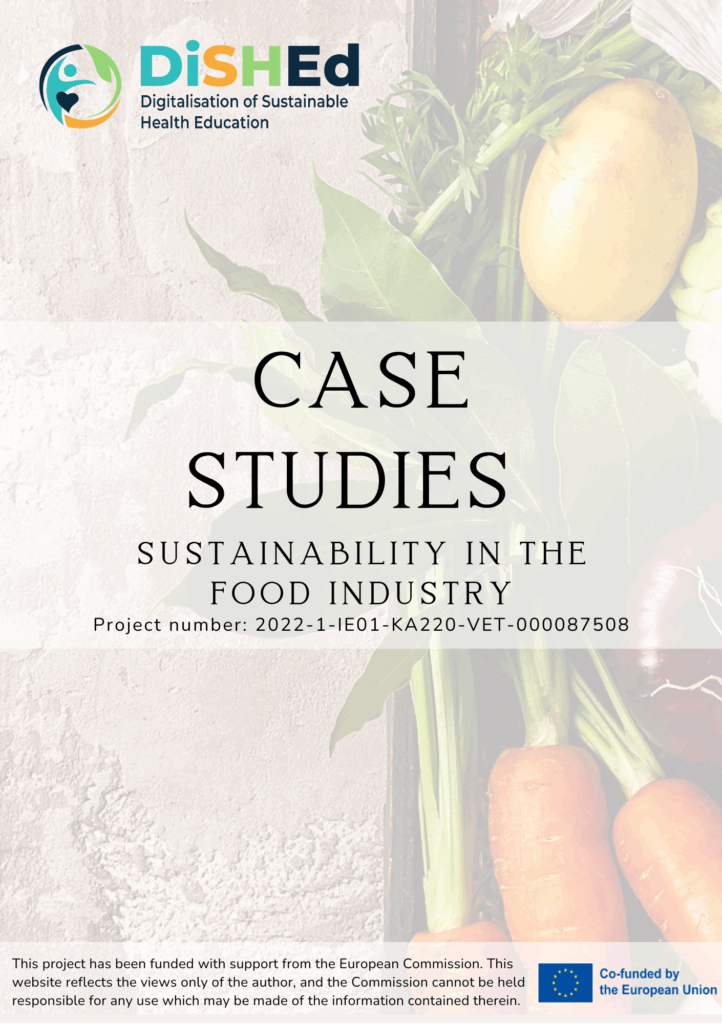
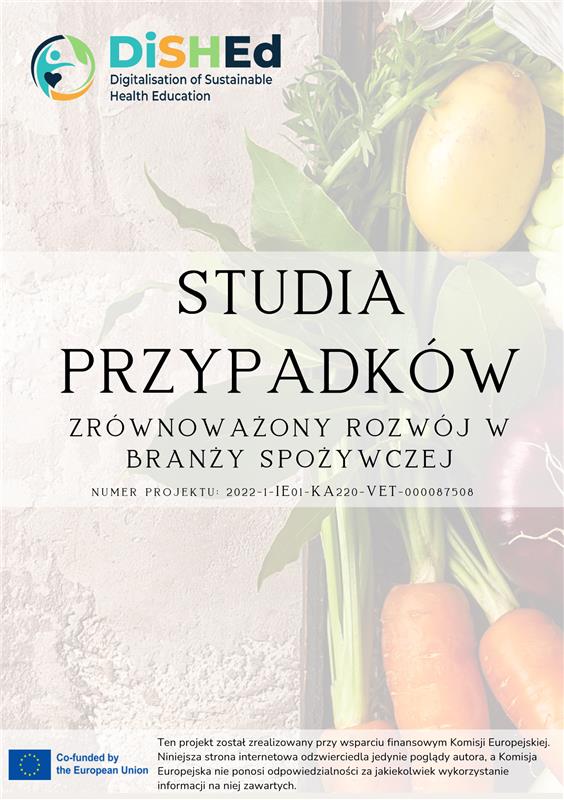
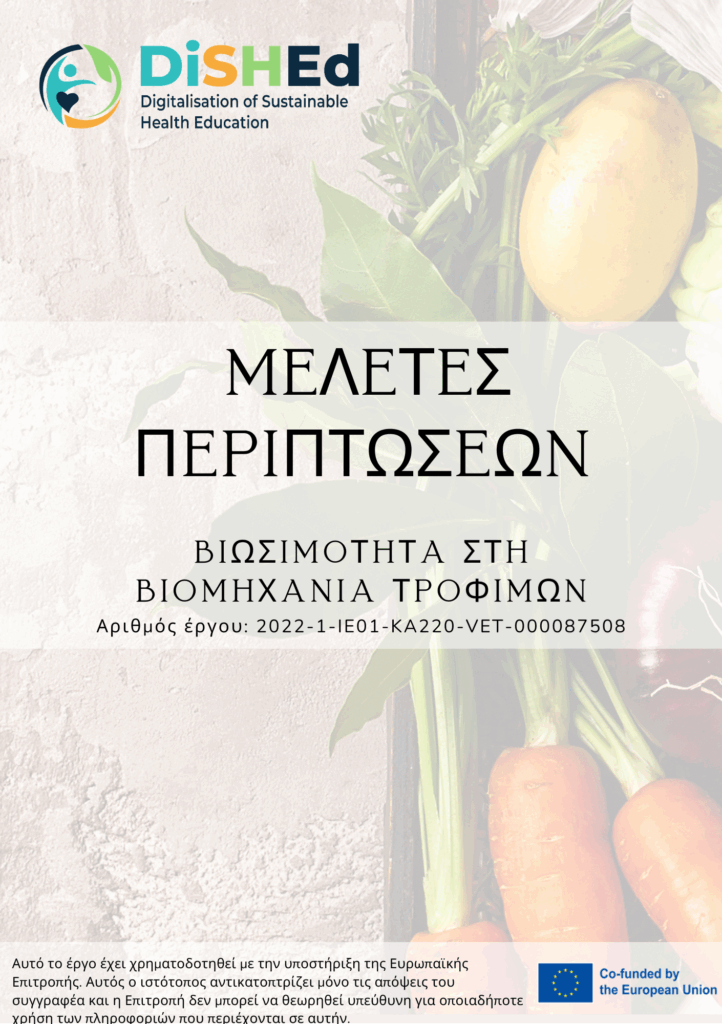
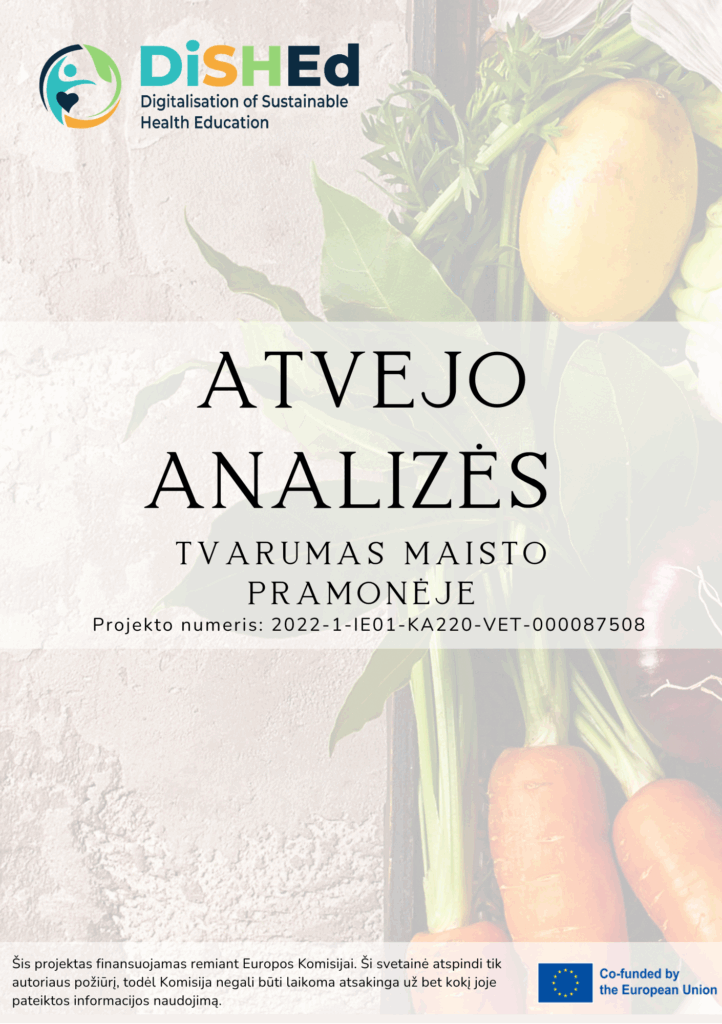
Result 5: Identify VET educator’s digital competency training needs
The infographics show the baseline digital competency levels of VET educators across Ireland, Cyprus, Lithuania and Poland. These competency levels were assessed through the use of the MyDigiSkills self-assessment tool where the VET educators from each country assessed their confidence and knowledge under the five digital competency areas.
These infographics highlighted the digital training requirements of each country and helped to inform the refinement of the R6 digital infographic booklet and the development of the R9 training guide for VET educators.
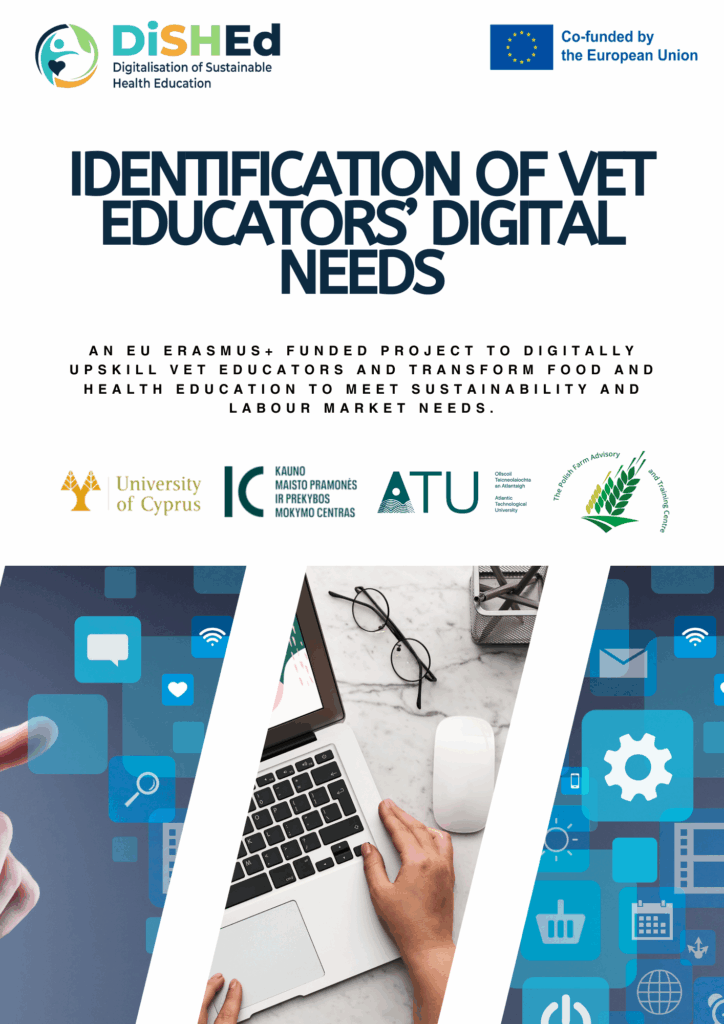
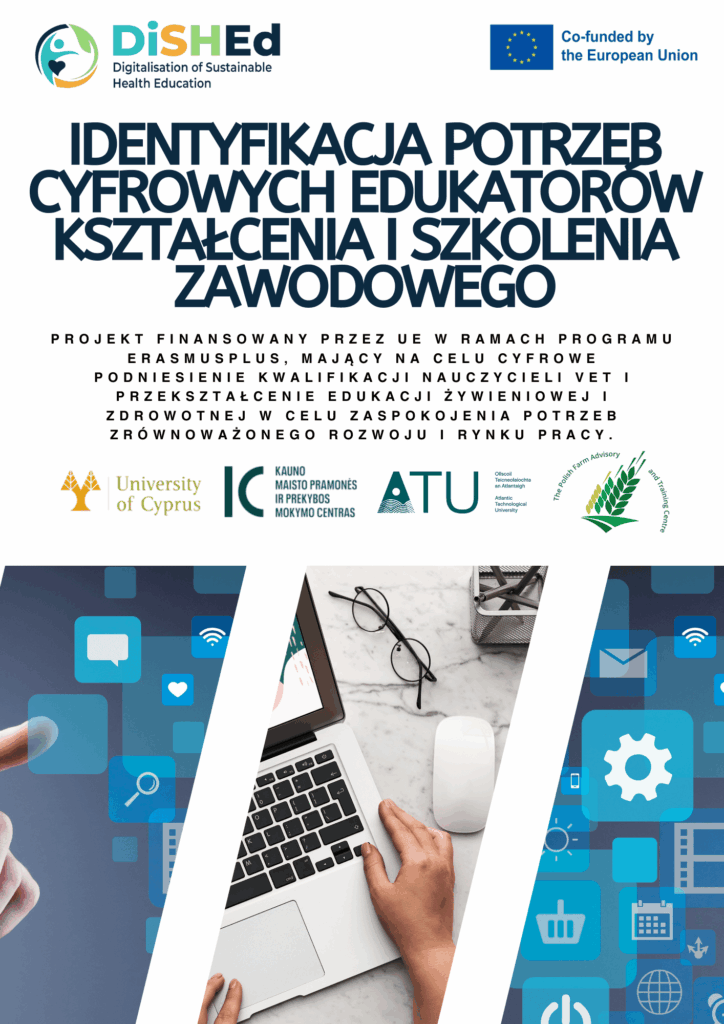
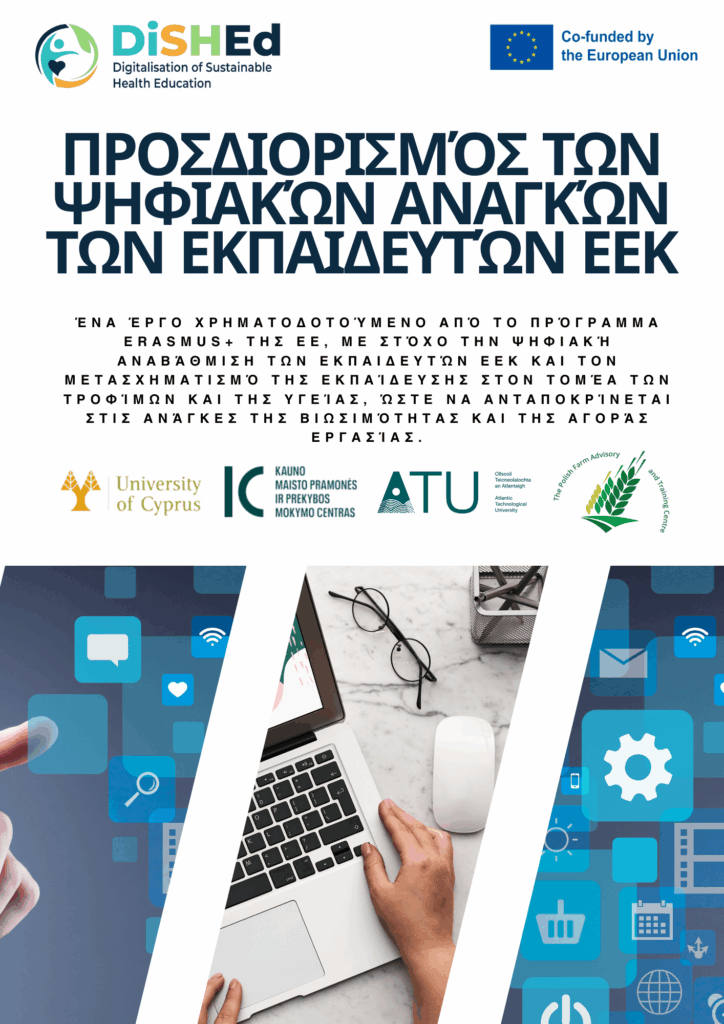
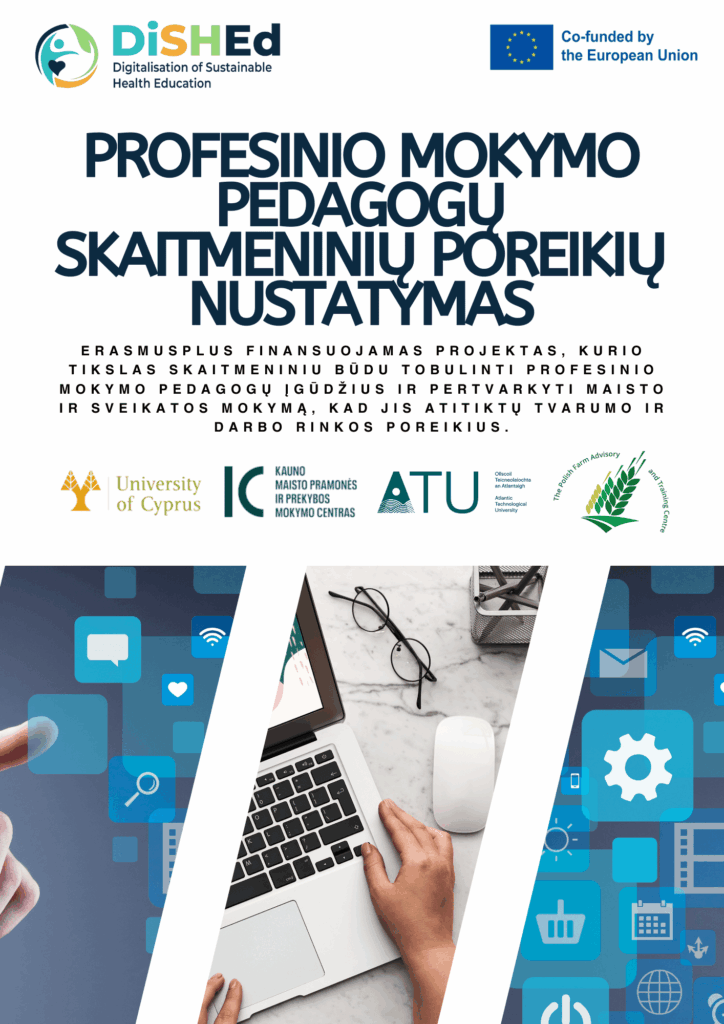
Result 6: Infographic Booklet on Digital Skills to Support Food and Health VET Educators
An infographic booklet to support Food and Health VET Educators with digital competency upskilling. The booklet was created to provide educators with a simple, one-stop guide to begin their digital skills transformation. The booklet provides users with an understanding of digital competency, signposts educators to free, research-based tools to assess their current digital skills levels, and directs educators to available tools and recourse to upskill in their identified areas of improvement (identified by the skills assessment).
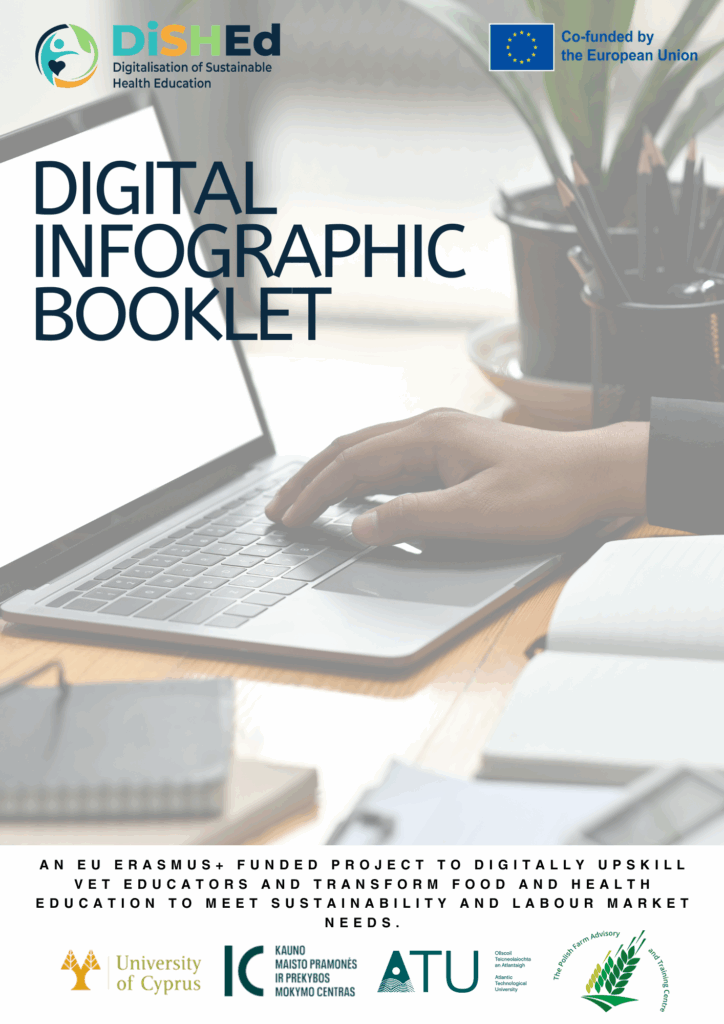
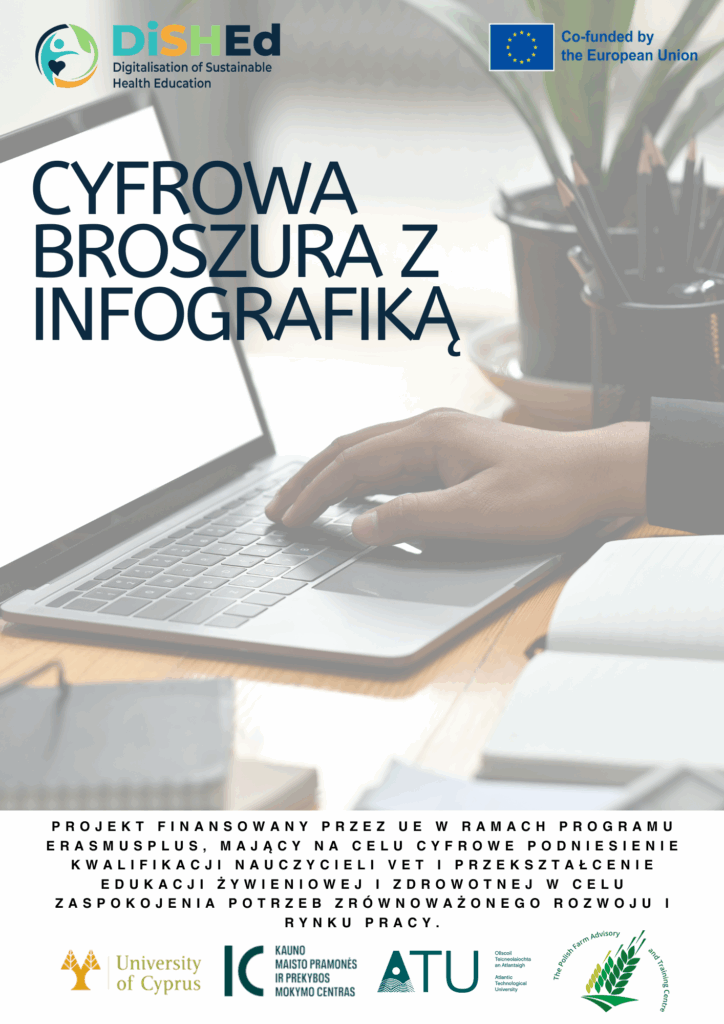
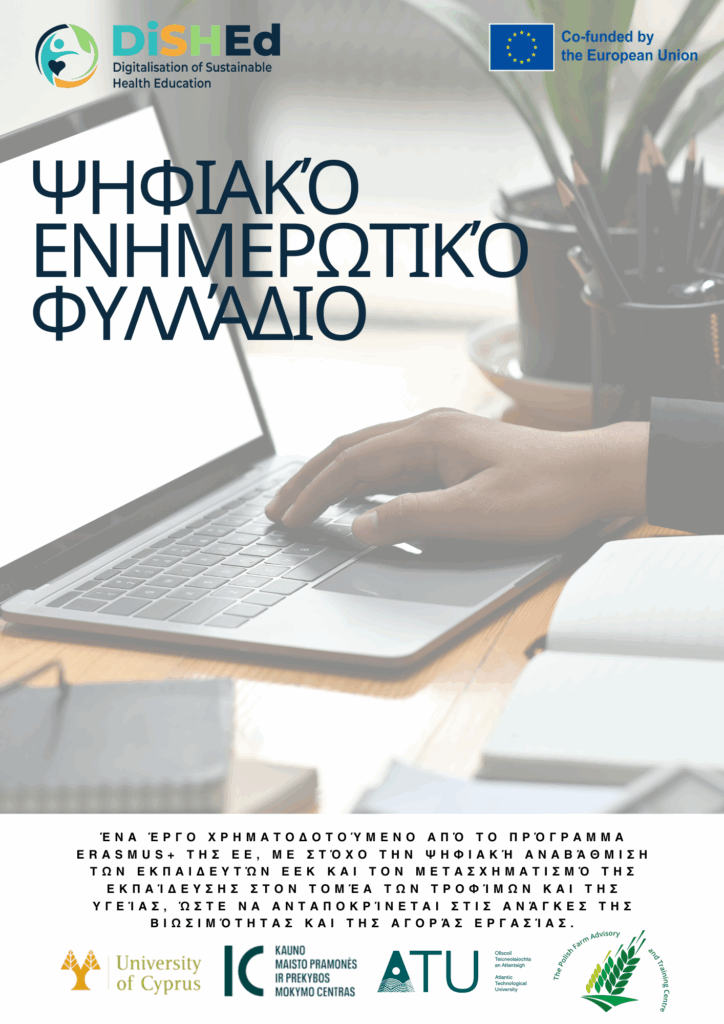
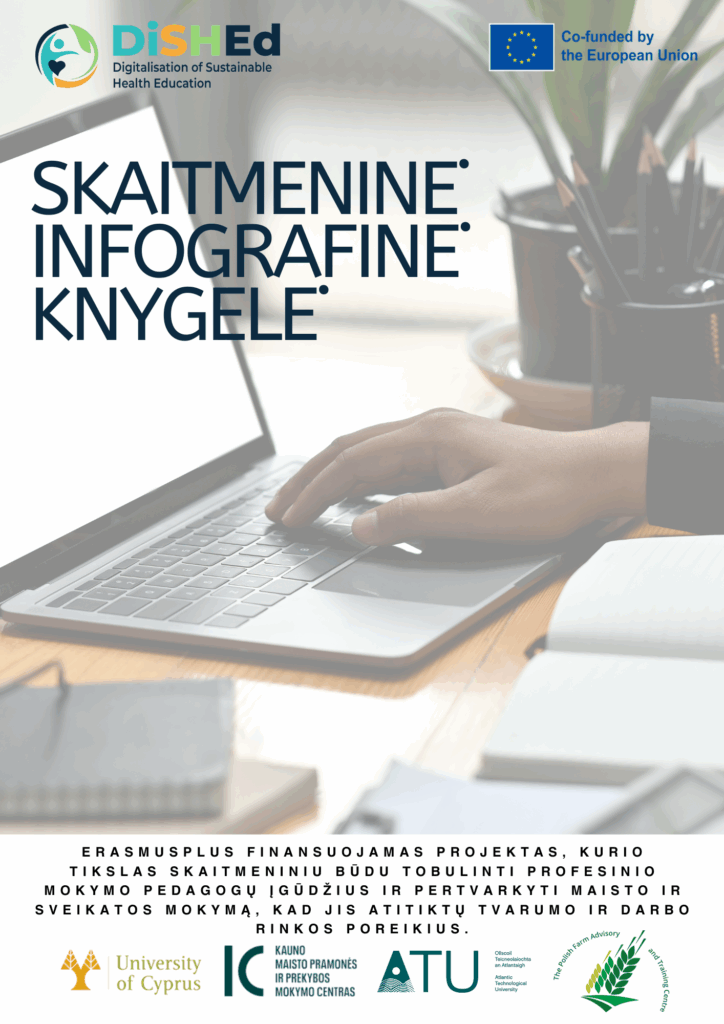
Result 7: A Report on Current Digital Competency Teaching Practices in Food and Health Curricula
A comprehensive report on the analysis of European food and health curricula highlighting where and how digital work-based skills development and sustainability education are currently taught, and to what extent they are incorporated on programmes. By identifying existing gaps and areas of strength, the report served as a foundation for adapting VET education to meet labour market demands more effectively.
This result underscored the need for innovation in educational practices, illustrating the critical steps needed to ensure that curricula evolve in line with industry standards and sustainability goals. This aligns closely with the project objective of preparing a workforce ready to engage in sustainable practices.
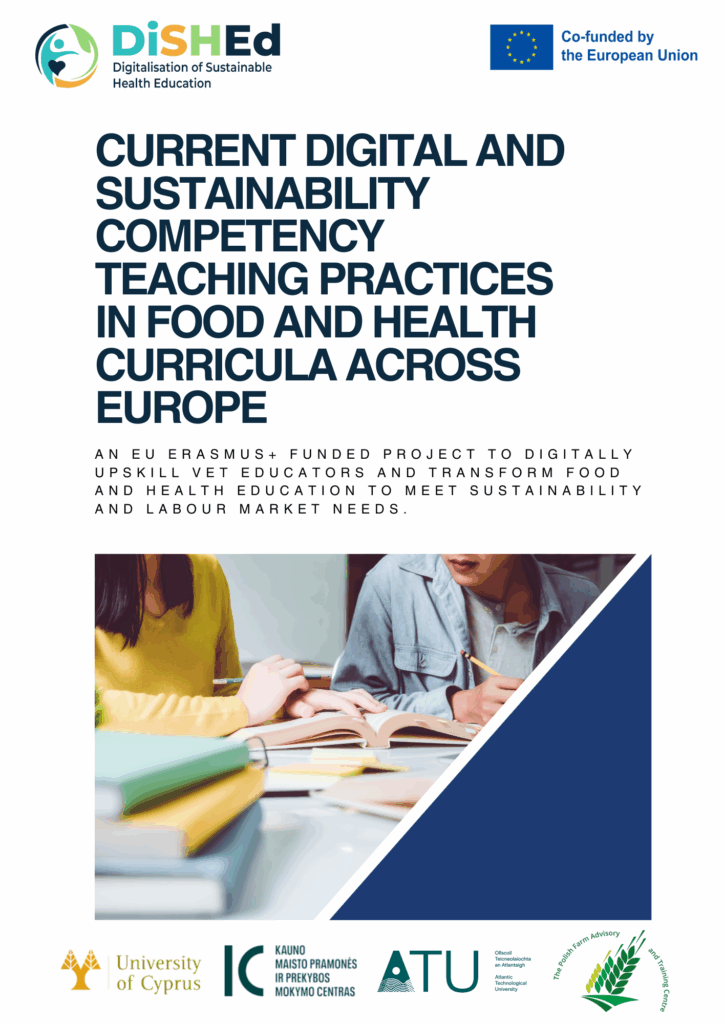
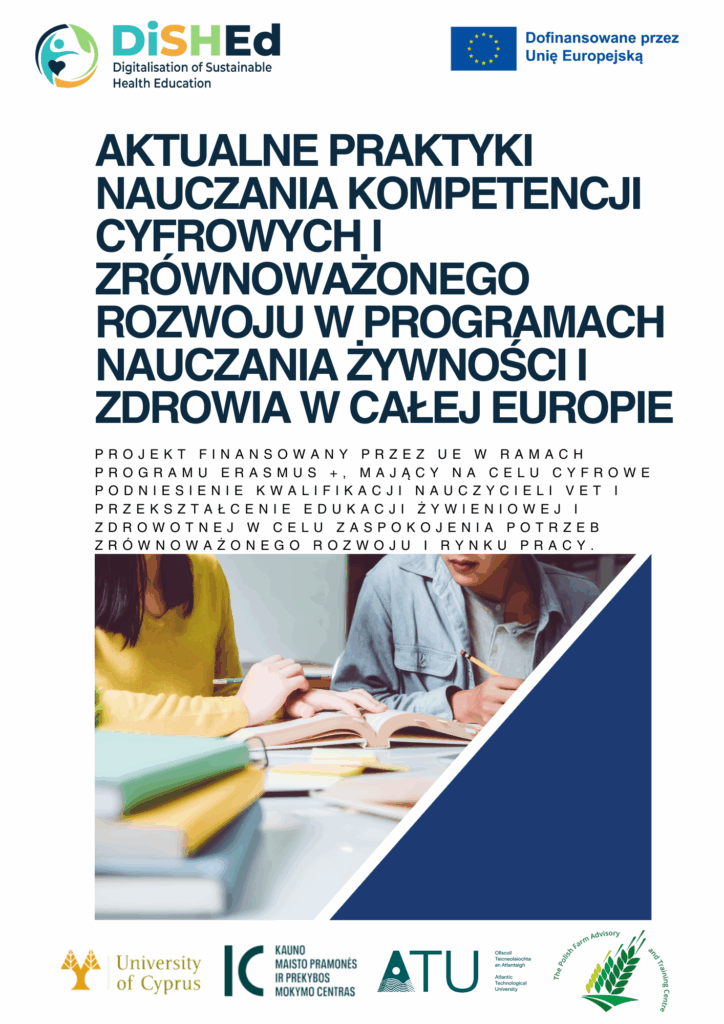
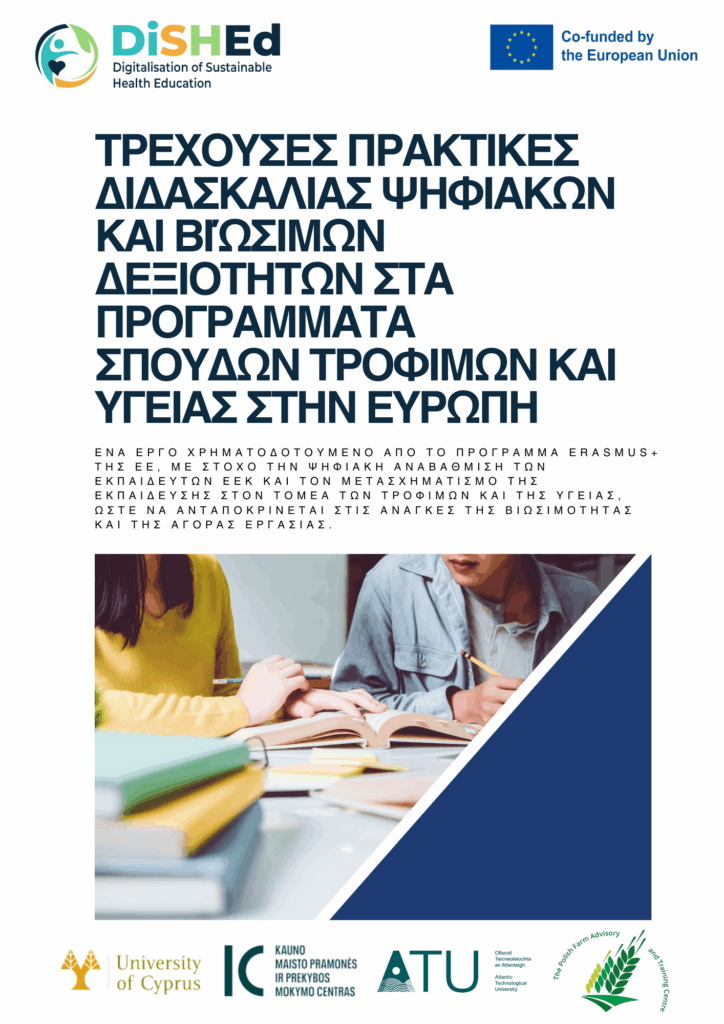
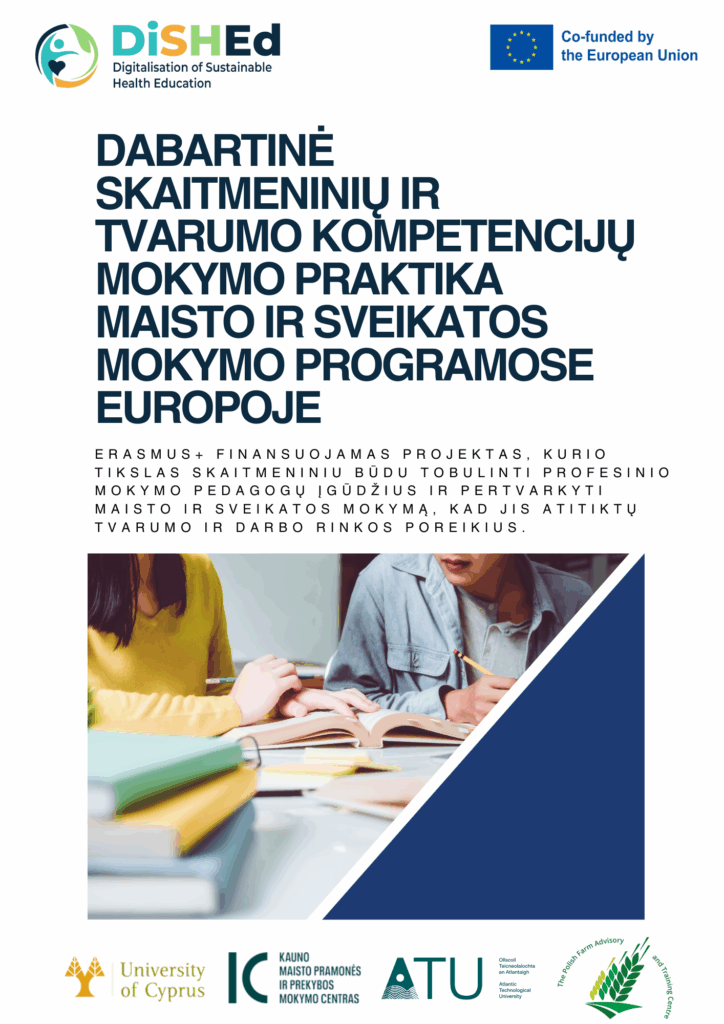
Result 8: Best Practices and Online Learnings from COVID-19 (from a staff training event)
COVID-19 accelerated the need for digital transformation across all sectors, including vocational education. VET educators at our Learning Teaching and Training Activity (LTTA) event and responses from additional educators via survey contributed their thoughts and opinions on the best practices for digital teaching and identified key strategies for the digital transformation of teaching practices.
This booklet highlights the best practices and learnings from COVID-19 for adapting VET food and health programmes to align with the digital landscape. The booklet also identifies areas for enhancement in education.
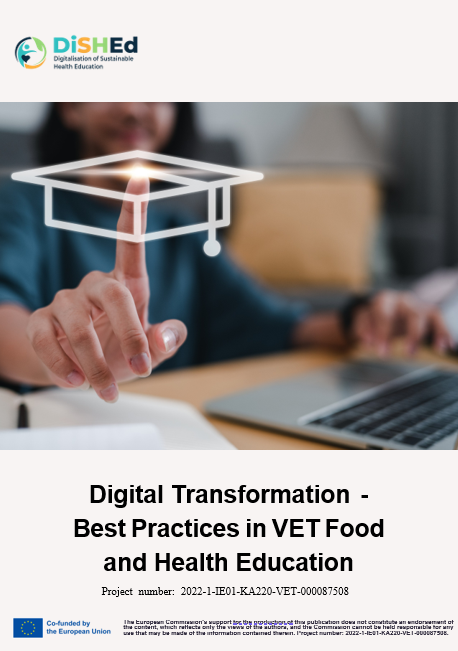

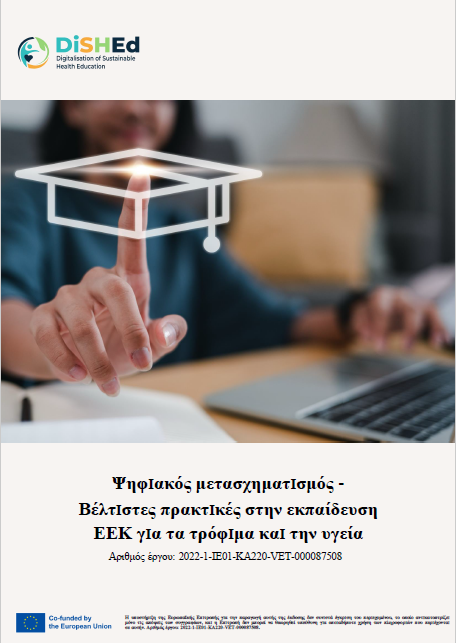

Result 9: Training guide for Food and Health VET educators on developing and teaching digital competence and food sustainable practices
A comprehensive guide offering insights into the critical role of digital competency in education. The guide explores established frameworks, innovative methodologies and practical tools to equip VET educators with the necessary knowledge and resources to integrate technology effectively into their practices and foster digital literacy among VET food and health students.
